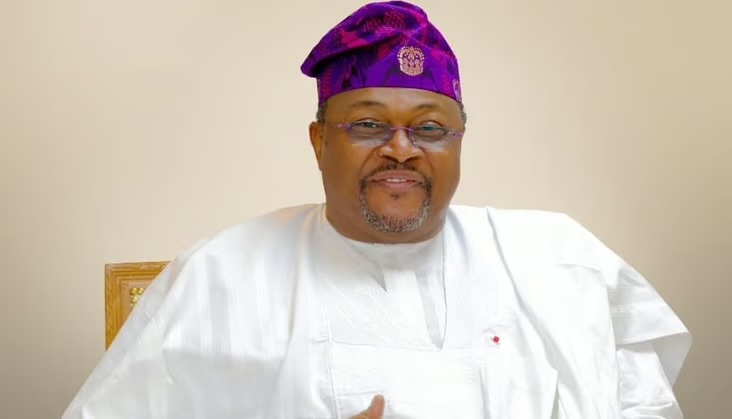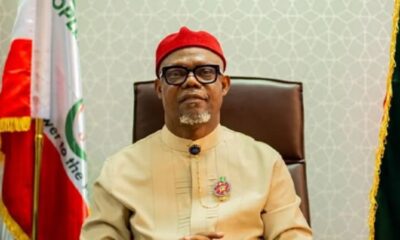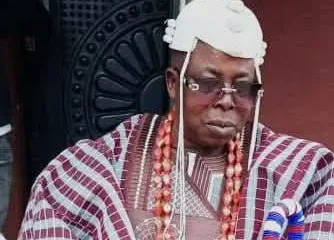Mike Adenuga commands one of Africa’s most closely held corporate empires. Beyond one flagship, Conoil, much of the value lies hidden in private companies such as Globacom. As rivals tap public markets, Adenuga is doubling down on control.
The 72-year-old chairs the Mike Adenuga Group, an empire that has spread quietly into real estate as well as the commanding heights of Nigeria’s economy.
Forbes put his net worth at $6.3bn on 10 October, ranking him fifth in Africa. He holds significant stakes in Julius Berger Nigeria; Sterling Financial Holdings Company, owner of Sterling Bank; and First HoldCo, parent of First Bank.
This piece maps the empire – where the money is made, how the parts relate and where the risks lie.
‘Somewhat unconventional’ investment strategy
Adenuga keeps a low profile. A rare birthday-party video from Lagos last month went viral precisely because he is seldom seen.
“I think his investment strategy seems to be a bit different and, to an extent, might look a bit unconventional,” says Ayokunle Olubunmi, head of financial institutions ratings at Agusto & Co.
“Some years ago, when he was aggressively acquiring shares of First Bank, many thought he was planning to be the majority shareholder. But now, he seems to have slowed down a bit. He’s always very reserved.”
Olubunmi says Adenuga may consider “unlocking the value of his investments” in the near term.
“Maybe he still feels that he needs to build value in his companies such that when he lists any, he’ll be able to get maximum returns. If you look at Glo, you will see that it hasn’t been doing that great in the market.”
Some years ago, when he was aggressively acquiring shares of First Bank, many thought he was planning to be the majority shareholder. But now, he seems to have slowed down a bit. He’s always very reserved
He does not see Adenuga as an activist investor: “He’s not somebody that will enter a company and try to shake things down.
“Adenuga seems to be a bit quiet and gradually changing things. For a long time, a lot of people didn’t know he had a significant stake in Julius Berger.”
“Adenuga’s strategy is very simple: find sectors with huge turnover and concentrate on them. He runs his empire like a one-man business,” says a Lagos-based analyst familiar with the group.
“In my mind, Adenuga is richer than [Aliko] Dangote. His incomes are not well classified because many of his businesses are not listed.”
Globacom, the crown jewel
Launched in August 2003, Globacom was Nigeria’s first indigenous mobile operator.
It arrived more than two years after MTN and Econet (now Airtel) but shook the market with per-second billing.
Glo, now the country’s third-largest operator, is the crown jewel. As of August it had a 12.21% market share and more than 20.9 million active subscribers.
“It’s the top rainmaker, although it has lost some subscribers in recent months,” says the analyst.
“Adenuga is awash with cash; he made a lot of money from Globacom.”
Rivals MTN Nigeria and Airtel Africa are listed and rank among the market’s most valuable and profitable companies.
Glo said in August it is pressing ahead with network upgrades “to ensure that subscribers continue to get value for money”, following a regulator-approved tariff increase.
The programme includes new base stations, densification in fast-growing areas and thousands of additional 4G LTE sites this year, with more than a thousand planned over the next year.
In 2010 Glo completed Glo-1, a high-capacity submarine cable linking the UK directly to Nigeria.
“We have soared high in our aspiration to build Africa’s biggest and best telecommunications network with millions of subscribers in Nigeria and Ghana,” the company says on its website.
On Adenuga’s 72nd birthday in April, President Bola Tinubu praised Glo’s disruption of the industry’s billing model, saying per-second charging widened access.
Conoil and Conoil Producing
Adenuga’s group plays both upstream and downstream.
Conoil Producing Limited – formerly Consolidated Oil Limited, founded in 1984 – holds stakes in several Niger Delta blocks.
In May, the Nigerian Upstream Petroleum Regulatory Commission hailed the first cargo of Obodo crude blend, calling it a milestone that underscores indigenous operators’ growing contribution to output and exports.
Conoil Plc, the first indigenous downstream marketer, operates hundreds of retail stations nationwide.
Founded in 1927 as the Shell Company of Nigeria (later Shell Company of West Africa), it became National Oil and Chemical Marketing Company before Adenuga’s Conpetro Limited acquired 60% in 2022; that stake has since risen to 74.40%, with the public holding 25.6%.
Listed since 1989, Conoil posted 2024 revenue of N323.13bn and profit of N8.77bn; market capitalisation was N146.49bn as of Friday.
It generated N13.94bn from operations in H1 this year and reported total equity of N40.39bn as of June.
Conoil transacts with other Adenuga-linked firms, including Conoil Producing (sales of petrol and diesel) and Southern Air (aviation fuel).
It also buys and sells with Glo Mobile Limited and uses Proline (WA) Limited to manage its stations.
“There seems to be a revamp at Conoil – stations are being refreshed,” says Olubunmi, who adds that the downstream landscape is shifting with Dangote’s entry.
First HoldCo and Sterling Financial Holdings Company
Adenuga entered banking in 1989 with Devcom Merchant Bank, followed by Equitorial Trust Bank (ETB) in 1990.
The two merged in 2005 under the ETB brand, but in 2009 the Central Bank of Nigeria judged the lender to be “in a grave situation”.
Succession is where people worry. He is still running some businesses closely. I’m not sure many of his children are currently in those businesses
ETB merged with Sterling Bank in 2011 after CBN intervention. Adenuga remains an influential shareholder.
He is represented on the Sterling Financial Holdings board by Michael Jitiboh, Globacom’s executive director for special projects and a former Devcom and ETB director.
Sterling reported 2024 profit of N43.67bn on gross earnings of N337.19bn; market capitalisation was N393.48bn on Friday.
At First Bank – the flagship subsidiary of First HoldCo – Adenuga is represented by Aderemi Lasaki, formerly assistant general manager at ETB, CEO of Devcom and an executive director at Globacom.
First Bank and Sterling Bank are key bankers to the group. Conoil reported deposits of N3bn with Sterling and outstanding letters of credit of N5.8bn with First Bank as of December 2024.
“I won’t be surprised if he consolidates in banking in the medium term – raising his stakes or even seeking a new licence,” says Olubunmi.
Julius Berger
Through Goldstone Estates Limited, Adenuga owns 19.87% of Julius Berger Nigeria – the second-largest individual stake.
In June 2017, his daughter Bella Disu joined the board. She chairs the strategy committee and sits on the audit and remuneration committees and the shareholders’ advisory council.
Since January 2021 she has chaired Abumet Nigeria, Julius Berger’s aluminium and glass subsidiary.
Julius Berger reported 2024 revenue of N566.71bn and profit of N15.51bn; market capitalisation was N203.2bn as of Monday.
The succession question
“Succession is where people worry,” says Olubunmi. “He is still running some businesses closely. I’m not sure many of his children are currently in those businesses.”
Adenuga has involved his eight children at various times. Three daughters sit on the boards of Conoil and Globacom, both long chaired by him.
Bella Disu, who started at Globacom 21 years ago, has been executive vice-chairman since January 2019, second only to her father, after more than 14 years as group executive director.
She is also CEO of Cobblestone Properties and Estates Limited, a developer largely owned by Adenuga and Bella, founded in 2011.
She joined the Julius Berger board in June 2017, chairs its strategy committee and serves on the audit and remuneration committees and the shareholders’ advisory council.
Since January 2021 she has chaired Abumet Nigeria.
Afolasade Michael-Adenuga, a lawyer, is a group executive director at the Mike Adenuga Group, covering legal counsel, customer care, business development and marketing.
Abimbola Michael-Adenuga, who shares her father’s birthday, has been an executive director at Conoil since 2013. (The Africa Report)



















